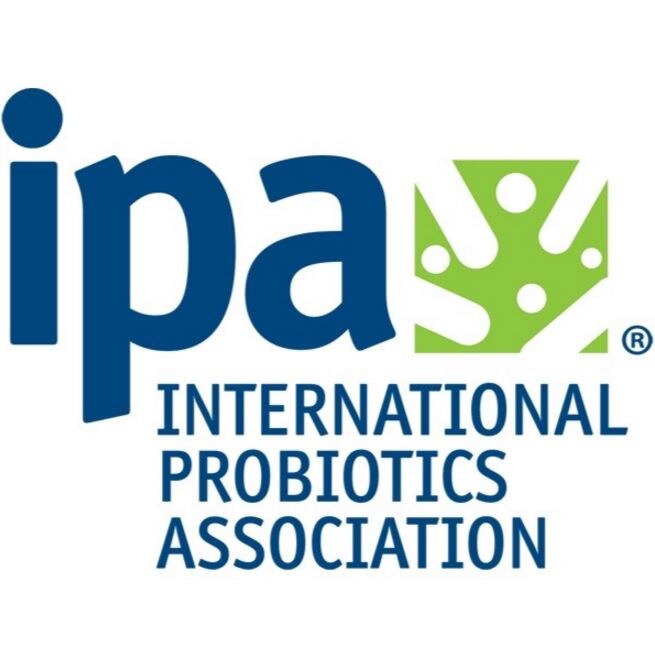Data published in The New England Journal of Medicine indicated that, for the LGG study, American children aged between three months and four years who went to the Emergency Room (ER) with acute gastroenteritis and given 20 billion colony-forming units (CFUs) per day for five days did not have better outcomes than children receiving placebo.
Similar results were observed for the other study, which included 886 children with gastroenteritis in Canada: There were no significant differences in the development of moderate-to-severe gastroenteritis between children receiving placebo or L. rhamnosus R0011 plus L. helveticus R0052 for five days.
Editorial: Other strains may be effective
In an accompanying editorial in the same journal, J. Thomas LaMont, MD, from the Division of Gastroenterology at Boston’s Beth Israel Deaconess Medical Center, left the door open for probiotics and various forms of acute and chronic diarrhea.
“The results of thousands of studies of probiotics have been published, and most of them have shown that probiotics are effective in treating or preventing various forms of acute and chronic diarrhea,” stated Dr LaMont.
“Taken together, neither of these [new] large, well-done trials provides support for the use of probiotics containing L. rhamnosus to treat moderate-to-severe gastroenteritis in children.
“These negative trial data will be valuable to clinicians and professional bodies in making decisions regarding the use of either of these probiotic formulations in children with diarrhea. However, given the large number of probiotic agents now available and considering their various mechanisms of action, abilities to colonize the bowel, and probably narrow potential efficacy for specific diseases, the possibility remains that probiotics other than L. rhamnosus might be effective in infectious diarrhea in children.”
Dr LaMont noted that results of a large, placebo-controlled trial in India (published in Nature, 2017, Vol. 548, pp. 407-412) indicated that healthy newborns given a probiotic formula containing L. plantarum prophylactically for the first five days of life had significantly lower rates of sepsis and lower respiratory tract infections in the first two months of life.
“This particular probiotic strain, as compared with other probiotics, including L. rhamnosus, can colonize the intestinal tract for a prolonged period,” he stated. “This factor could explain its reported efficacy in preventing sepsis up to 2 months after administration.
“With their low cost and minimal toxic effects, probiotics have potential for the treatment of a variety of gastrointestinal and other diseases, but rigorous trials such as those described in this issue of the Journal are required to determine any potential efficacy or effectiveness.”
Study details
Both studies had similar designs: Both included children aged between three and 48 months who presented at ERs, and both used five day courses of either probiotics or placebo. The US study by Schnadower et al. at the Washington University in St Louis included 971 children (943 completed the study), while the Canadian study by Freedman et al. at Alberta Children’s Hospital included 866 children (of which 827 completed the study).
While the Freedman et al. paper specifically stated: “Our findings cannot be extrapolated to longer-term use of probiotics or other outcomes…”, the researchers from Washington University School of Medicine in St. Louis used their results to dismiss all probiotics for all end-points.
In a press release from the university, co-author Prof Phillip Tarr stated: “The results of the U.S. and Canadian studies were not ambiguous. Probiotics had no effect on the children. Parents are better off saving their money and using it to buy more fresh fruits and vegetables for their children.”
Lead author Dr David Schnadower, MD, added: “We tested many different scenarios -- infants compared with toddlers, whether the patient had taken antibiotics, whether the gastroenteritis was caused by virus or bacteria, and how long the diarrhea had been going on before the treatment was given. We also had the probiotic independently tested for purity and strength. Every time, we reached the same conclusion: LGG did not help.”
IPA: “A null study is not a negative study”

Commenting on the studies’ findings and the subsequent media coverage, the International Probiotics Association stated: “In contrast to what some media have suggested, these two studies are ‘null-studies’ and not negative studies. A null study is one of three potential outcomes of a scientific research study and - contrary to popular belief - does add to the body of knowledge.
“These particular studies do not prove that probiotics do not work, but rather disprove their null hypothesis: that L. rhamnosus GG and the combination of L. rhamnosus R0011 and L. helveticus R0052 are not more effective than a placebo in each respective pediatric patient population at each respective dose for the reported frequency of administration.
“Together, these studies also contribute safety data from their secondary outcomes in this patient population as there were no significant differences in the rate of adverse events between groups in either study.
“There is a serious lack of understanding regarding demonstrating probiotic efficacy in clinical trials. To this end, the IPA will be working on a tool in 2019 on how to study probiotics and the factors that need to be taken into account for study design, conduct and analysis.
“IPA hopes that this will help to raise awareness of the unique features and considerations that are required for substantiation of high-quality probiotic products for commercial, scientific, regulatory and media stakeholders.”
Lallemand: “Null outcomes from one specific treatment study in a specific sub-population group cannot be applied to - and should not undermine - probiotics directed for use as supplements to maintain health on a longer basis”
The Canadian trial used L. rhamnosus R0011 plus L. helveticus R0052, which has been marketed by Lallemand Health Solutions as Lacidofil for over 30 years. The strain combination has been the subject to 26 clinical trials, said the company.
There was also a 2011 review published in Beneficial Microbes (Vol. 2, No. 4, pp. 319-334) of Lacidofil for gastrointestinal-related diseases in pediatric population. This included three separate non-industry-led clinical trials, which showed positive results in a pediatric population for gastroenteritis. However, Lallemand noted that these studies were smaller scale studies conducted in children that were slightly older than in the study conducted by Freedman et al.
“The clinical trial performed by Dr. Freedman with 866 infants/children was well designed. It was for this reason that Lallemand Health Solutions decided to provide Dr. Freedman with the product and the placebo (regardless of the outcome of the study which we are unable to anticipate, especially when the primary outcome has not been tested before at such large scale),” said the company in a statement.
“Having said this, it is still important to note that the randomization between groups at the beginning of the study was not perfect as Rotavirus A infection was identified more often in participants in the probiotic group than in the placebo group (p=0.003). Also, given the variation of virulence of rotaviruses and noroviruses year by year, the fact that the study was conducted over a period of four years may have induced some additional bias in the results.
“These differences may explain why some studies are positive and some are null (which is different to negative outcomes).”
“Probiotics have already demonstrated benefits in different age categories, for different health conditions”
The Lallemand statement continued: “Probiotics have already demonstrated benefits in different age categories, for different health conditions, and under different regulatory status approved by competent health authorities after thorough review of scientific evidence. While both maintenance of health and management of diseases are possible uses for probiotics, it is crucial to understand that null outcomes from one specific treatment study in a specific sub-population group cannot be applied to - and should not undermine - probiotics directed for use as supplements to maintain health on a longer basis.
“It is unfortunate that the press is compelled to convey negative conclusions to the end-consumers based on two studies showing null outcomes. On a positive note, these two studies, conducted in a large group of subjects, build a strong proof of safety for use in infants.
“The ever-evolving science shows that the human microbiome is involved in many physiological states and the scientific community acknowledges that probiotics have a role to play as a safe natural solution to support human health in countless ways,” stated Lallemand.
Probiotics: Benefits Beyond Digestive Health

An upcoming webinar from NutraIngredients-USA will dive deeply into the science around the potential health benefits of probiotics beyond digestive health. Join our panel experts at this free to attend webinar to learn more about the state of the science for probiotics – or prebiotics – for weight management, sports nutrition, women’s health, cognitive function and mood, heart health, immune support, and even skin health.
For more information and to register, please click HERE.
Sources
The New England Journal of Medicine
Volume 379, Pages 2015-2026, doi: 10.1056/NEJMoa1802597
“Multicenter Trial of a Combination Probiotic for Children with Gastroenteritis”
Authors: S.B. Freedman, et al.
The New England Journal of Medicine
Volume 379, Pages 2002-2014, doi: 10.1056/NEJMoa1802598
“Lactobacillus rhamnosus GG versus Placebo for Acute Gastroenteritis in Children”
Authors: D. Schnadower, et al.
The New England Journal of Medicine
Volume 379, Pages 2076-2077, doi: 10.1056/NEJMe1814089
“Probiotics for Children with Gastroenteritis”
Author: J.T. LaMont




